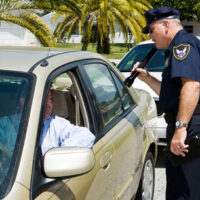When The Police Can Pull You Over: Understanding Reasonable Suspicion

Somedays it feels like police officers have all of the power. It can seem like they have the ability to stop and question you whenever they like. However, this is not true. You have essential Constitutional rights that officers cannot violate without serious consequences. Because of your Constitutional rights to privacy and to be free from unreasonable detainment, police officers must have reasonable suspicion that you are involved in a crime before they can pull you over while driving. If an officer did not have a lawful reason for stopping you, then any following arrest and charges may not be valid.
What is Reasonable Suspicion?
It is not enough to say that the police need to have reasonable suspicion to pull you over. You need to understand what reasonable suspicion is – and what it is not. Reasonable suspicion comes from the officer observing factual circumstances that point toward your being involved in a crime. It relies heavily on facts and not feelings, hunches, or gut instincts. Police officers who pull you over must be able to describe the observations and circumstances that led them to believe you were involved in some sort of criminal activity.
For example, the police may stop you under suspicion of a DUI if you were weaving in and out of your lane, since this is a valid sign of intoxication and the inability to safely operate a vehicle. If it is also 2 a.m. and there are bars along the road, these are additional facts that enable the officer to have reasonable suspicion of a DUI.
Reasonable Suspicion is Not Enough for an Arrest
Reasonable suspicion is a lower legal standard than probable cause, which is required for the police to arrest you or obtain an arrest or search warrant against you. All the police need is reasonable suspicion to pull you over, yet they must gather more information to arrest you for a DUI. If, once the police stop you, they notice other signs of inebriation, this usually gives them probable cause. For instance, if there are open containers of alcohol in the vehicle or you fail a breath test, this is enough to establish that it is probable that you are guilty of driving while intoxicated. However, reasonable suspicion does not always turn into probable cause. If the police pulled you over but then you were clearly responsive and polite and showed no signs of inebriation, they must let you go.
Challenging Reasonable Suspicion
One of the first defenses to getting arrested for a DUI or another vehicle-related crime is to challenge the initial stop. You and your criminal defense attorney can question the police officer regarding why they pulled you over. This will include asking the officer for specific, observable facts and circumstances that them to believe you may have been intoxicated. Your attorney can point out to the judge or jury when the officer did not have enough facts arising to the level of reasonable suspicion.
The Exception to Reasonable Suspicion
There is one major exception to the police stopping you without reasonable suspicion and that is a lawful roadblock. It is lawful in Florida for the police to set up DUI checkpoints where all or certain vehicles must stop. You may have to stop and talk with police at one of these points, but you are only required to identify yourself and provide your ID and insurance information. You never have to say any more.
If you were pulled over and it led to an arrest or charges and you believe the stop was illegal, call us today at Salazar & Kelly Law Group, P.A. 407-483-0500. Our Kissimmee attorneys are eager to help you immediately.
Resource:
law.cornell.edu/wex/reasonable_suspicion

